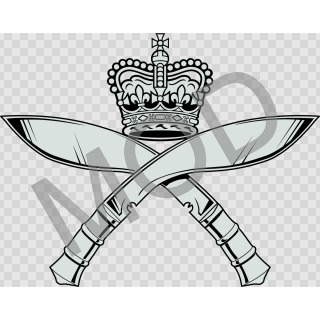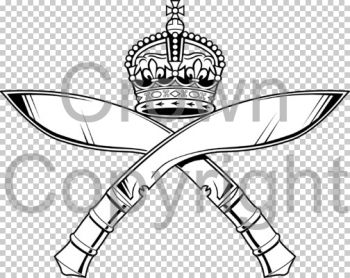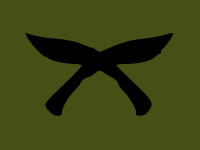The Royal Gurkha Rifles, British Army: Difference between revisions
Jump to navigation
Jump to search
No edit summary |
No edit summary |
||
| Line 10: | Line 10: | ||
|align="center"|[[File:{{PAGENAME}}1.jpg|center|350 px|Arms of {{PAGENAME}}]] <br> (King Charles III Version) | |align="center"|[[File:{{PAGENAME}}1.jpg|center|350 px|Arms of {{PAGENAME}}]] <br> (King Charles III Version) | ||
|align="center"|[[File:{{PAGENAME}}trf.png|center|350 px|Arms of {{PAGENAME}}]] <br> (Tactical Recognition Flash) | |||
|} | |} | ||
Revision as of 11:25, 2 July 2023
THE ROYAL GURKHA RIFLES, BRITISH ARMY
History: Formed in 1994 by amalgamation of 2nd King Edward VII's Own Gurkha Rifles (The Sirmoor Rifles), 6th Queen Elizabeth's Own Gurkha Rifles, 7th Duke of Edinburgh's Own Gurkha Rifles and
10th Princess Mary's Own Gurkha Rifles. These had on the Independence of India in 1947 been allocated to the British Army.
Brigade of Gurkhas Headquarters: Robertson House, Camberley, Surrey.
| (Queen Elizabeth II Version) |
(King Charles III Version) |
(Tactical Recognition Flash) |
| English | blazon wanted |
Origin/meaning
Unfortunately we have no information on the meaning or origin of these arms yet.
If you have any information on the origin or meaning of these arms, or have additional images that you want to share, please mail us your information !
Literature: Image from Defence Brand Portal Ministry of Defence
| Heraldry of the World |
| British heraldry portal Civic heraldry of the United Kingdom |
|




